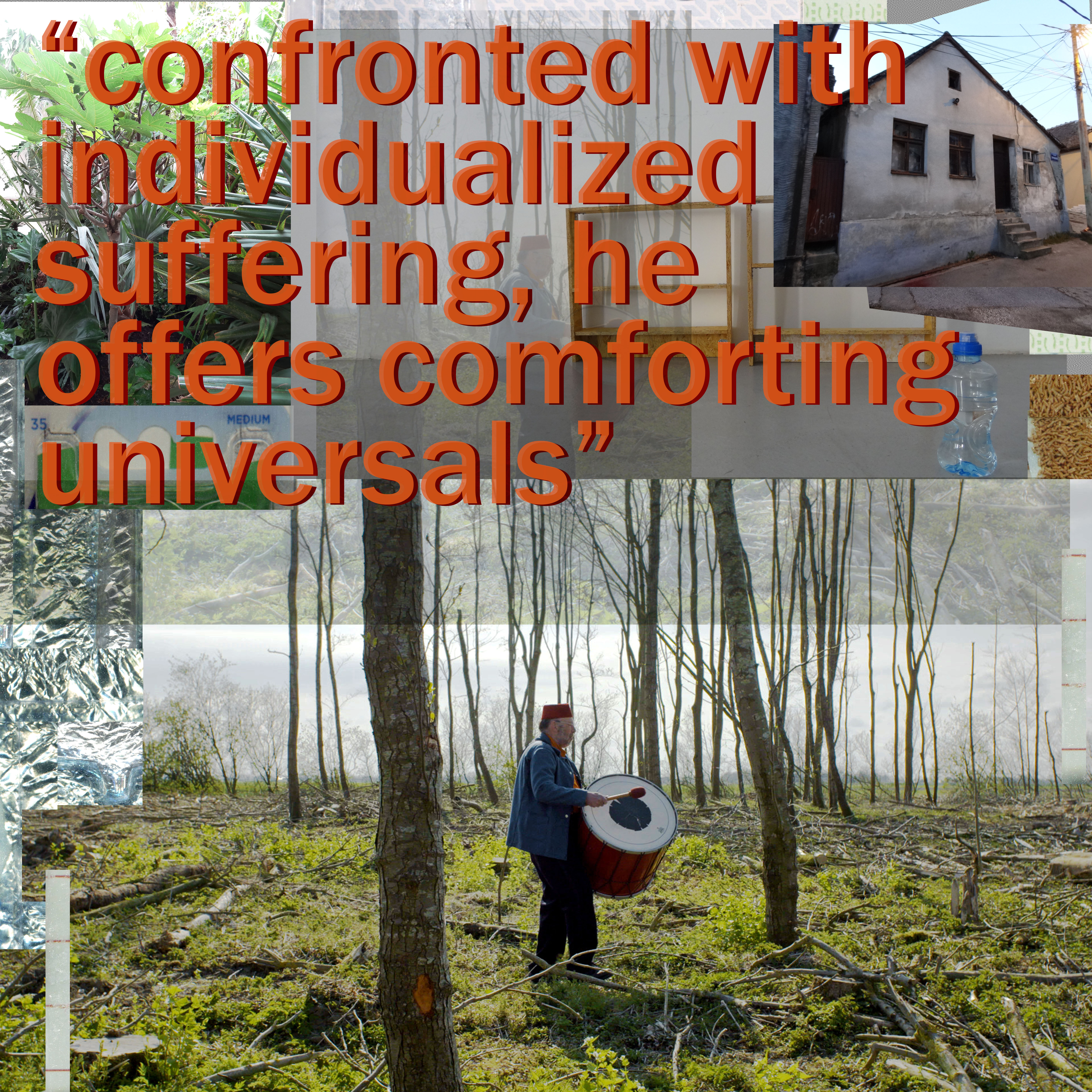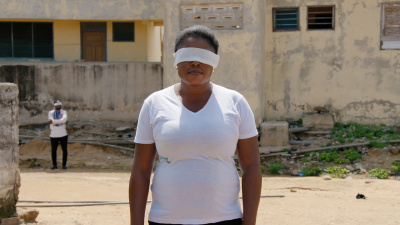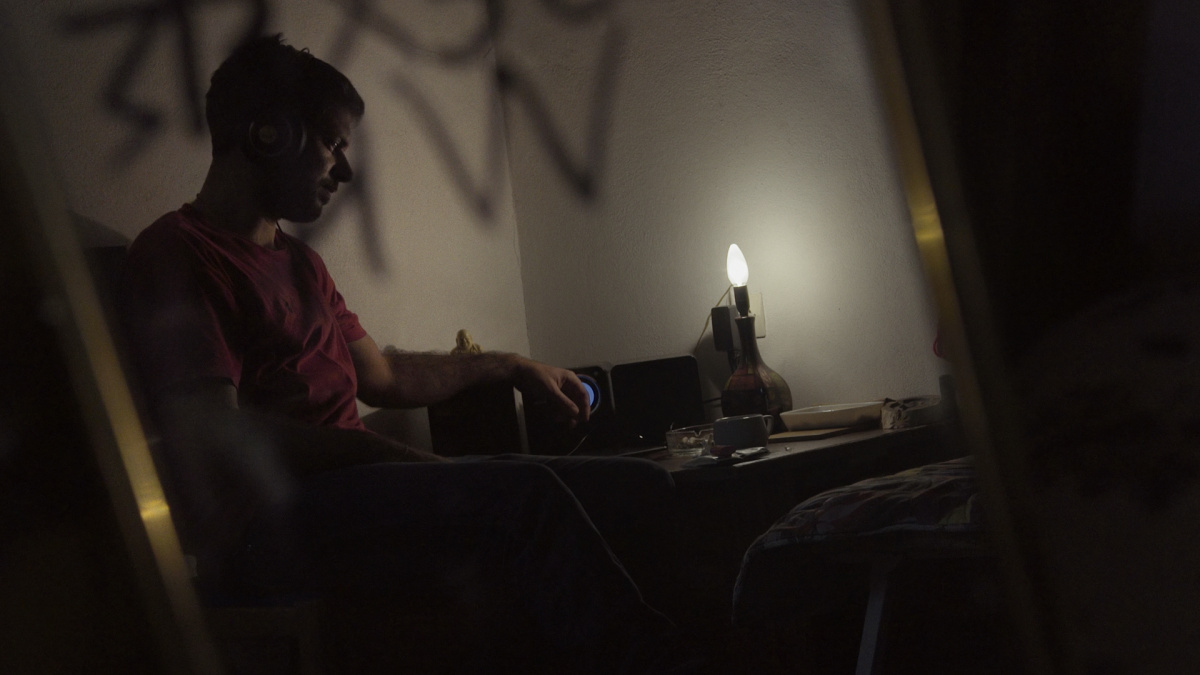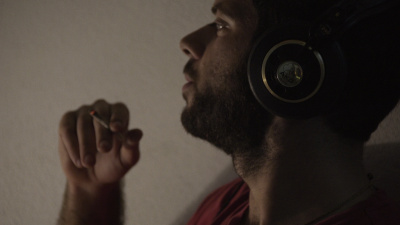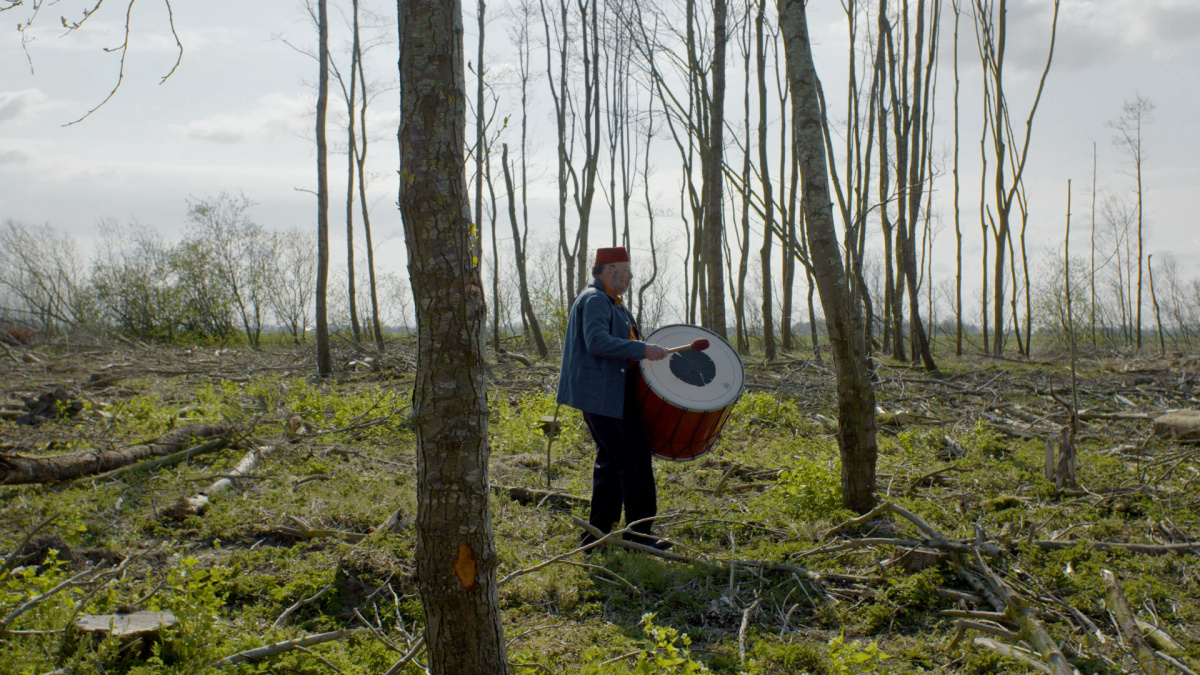
More Sad Hits
The Long River Slides is a celebration of life’s complexities, and of the power of music to help navigate them. As Angus Finlayson notes, today’s modern pace and capitalist packaging often tries to sidestep such complexities. In documenting De Kift frontman Ferry Heijne’s journey to gather sad stories and make songs worthy of them, this film reminds Finlayson of what’s been lost.
→ Check all articles of this special
→ Download PDF with introduction and table of contents
«Not until the sadness has been sung/Is there joy for those who have lived it». Recited by Dutch-Iraqi writer Rodaan Al Galidi, this line in Sanne Rovers’ The Long River Slides sounds gloriously out of step with the times. In the era of streaming platforms, all music is increasingly Muzak: grist for the mill of mood-themed playlists, an unobtrusive backdrop to the drudgery of late capitalist life. The idea that sadness, suffering, and struggle can – perhaps even should – be transmuted into song has become alien. Instead, as Liz Pelly writes in «The Problem With Muzak», streaming platforms present music to their millions of users as an «emotional regulation capsule», a bubble of «chill vibes» into which life’s more troubling aspects cannot intrude.
Sad Songs Say so Much
The Long River Slides is far from a polemical film, but it could be seen as a rejoinder to this way of thinking. Billed as a «musical meditation on sadness», it’s a celebration of the power of music to help us confront life’s adversities. The protagonist is Ferry Heijne, frontman of Dutch band De Kift, who departs on a journey to hear stories of ageing, bereavement, loneliness, and heartbreak. Each story gives rise to a song; and in performing the song back to the storyteller, Heijne offers them a profoundly moving acknowledgement of their experiences.
The film seems aware that Heijne’s approach swims against the contemporary tide. As he departs on his journey, the band sings farewell to him in doleful close harmony, and much of the film feels like a protracted goodbye. In search of his stories, Heijne’s barge glides through an elegant landscape of depopulated fields and gloomy shipping yards. The Dutch canals, once conduits of industrialization, are now eerie backroutes, far from the fibre-optic thrum of the internet age. Most of the film’s subjects are greying; some are no longer present, as with Heijne’s father, whose dementia means he can no longer play in the band.
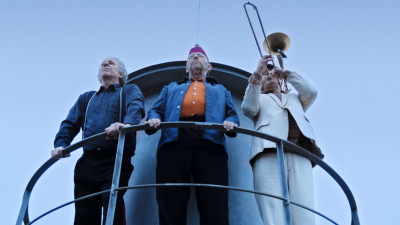
Radical Melancholy
But The Long River Slides doesn’t wallow in melancholy; it’s not a nostalgic ode to something lost. Instead, Heijne’s project is presented as gently radical. In an atomized society, he seeks out moments of human connection; confronted with individualized suffering, he offers comforting universals. The political relevance of this approach is particularly evident in his song for Al Galidi, which shines a light on the writer’s struggles with the Dutch immigration system. In the film’s most affecting moment, a bereaved father watches De Kift perform a song inspired by the story of his lost daughter. After the music dies away, the camera lingers on his face, capturing a play of emotions too complex to parse. Pain is in there, and gratitude too. In the streaming age, our relationship with music too often lacks both.
The film «The Long River Slides» by Sanne Rovers was officially selected at the Norient Film Festival NFF 2021. See full program here.
This text is part of Norient’s essay publication «Nothing Sounds the Way It Looks», published in 2021 as part of the Norient Film Festival 2021.
Bibliographic Record: Rhensius, Philipp. 2021. «Editorial: NFF 2021 Essay Collection.» In Nothing Sounds the Way It Looks, edited by Philipp Rhensius and Lisa Blanning (NFF Essay Collection 2021). Bern: Norient. (Link).
Biography
Published on December 07, 2020
Last updated on April 09, 2024
Topics
Desires are produced personally and impersonally: About music as desiring machine and the elasticity of bodies.
Snap
